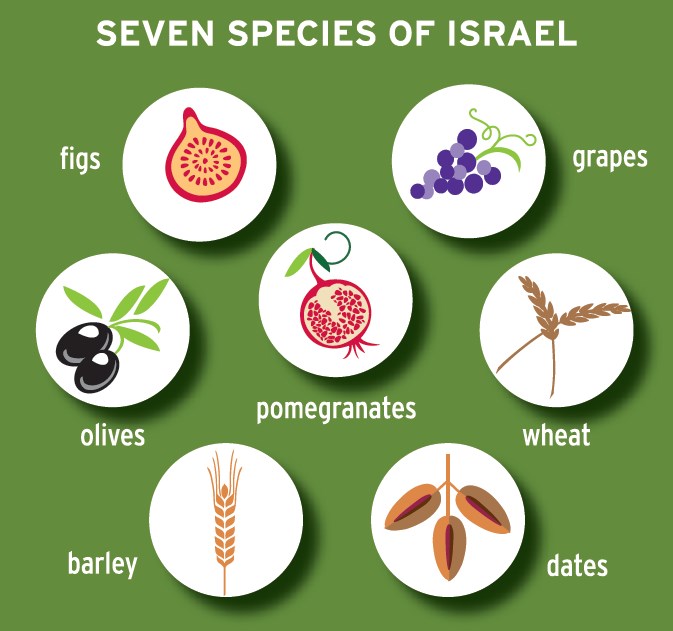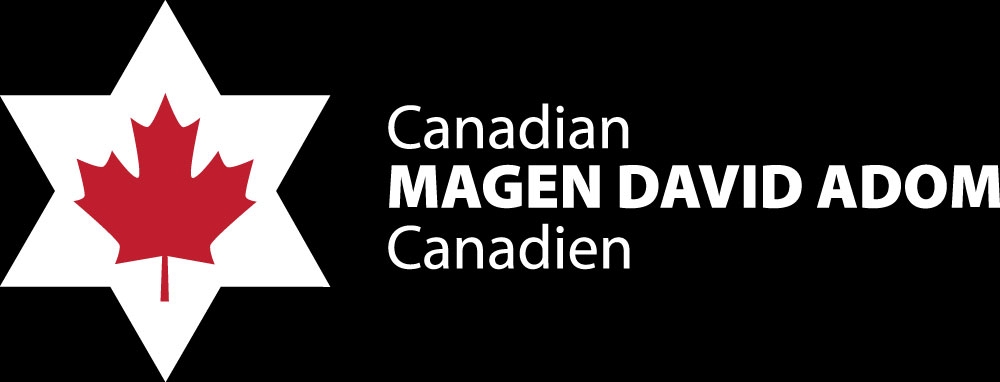Tu Bishvat Sameach to all
This year Be'ezrat Hashem will be celebrating Tu Bishvat Starting Jan 24 Wednesday night and all day Thursday .I have compiled some halachot and Minahgim as well as the seder of Tu Bishvat in a link below.
The Mishnah says:
The first of [the month of] Shevat is the New Year for the Trees, according to Beit Shamai; Beit Hillel says it is the fifteenth [of the month of Shvat] (Rosh Hashana 2a). The reason why Tu B’Shevat is the New Year for the Trees is an argument in the Gemara Yerushalmi. One opinion says that by the fifteenth of Shevat most of the rains for the given year have already fallen, and it is thus the time that fruits begin to emerge. Another opinion says that while all the fruits that grew until this day are mainly a product of the rains from the previous year, the fruits produced from this day onward are essentially a product of the rains of the new year (Yerushalmi, Rosh Hashana 1:2; see also Bavli, Rosh Hashana 14a with Rashi and Tosafot). It is for this reason that many communities customarily eat several different types of fruits to celebrate the day (Mishna Berura 131:31; Kaf Hachaim 131:97). It is also for this reason that many have the custom to pray for a beautiful and kosher etrog for the upcoming Sukkot holiday on this day (B'nei Yisaschar, Shevat 2:2; Lashon Chachamim 1:38).
Laws and customs of Tu BiShvat Maran Rishon L’etzion Harav Yitzchak Yosef Shelita
Tu BiShvat is Rosh Hashanah La’ilanot(for the trees).And we do not fast on Tu Bishvat nor do we say Tachanun.
It is customary to study on the night of Tu B'Shvat, and read Mishnah and Zohar as it is written in the book “ Pri Etz Hadar” that has been printed especially for Tu Bishvat and one should study in particular as much as possible, the laws of Tu BiShvat,
It is customary to eat many different types of fruits on the night of Tu BiShvat, and especially fruits that have been Blessed/praised in the Torah from the Land of Israel, to show that it is Rosh Hashanah for trees, and to bless them with the blessings they deserve.
In a year where Tu Bi’Shvat falls on Shabbat, (Friday night) it is customary to bring the fruits and make the Berachot (blessings) immediately after the Kiddush, before washing the hands for the meal. This custom has several opinions and controversies among the Chachamim (Rabbis) as to whether they should say Beracha Me’en Shalosh ``Blessing of Mezonot[cakes ,cookies etc…../Wine or Fruits mentioned in the Torah} after eating the fruits.Or will we be exempt by saying Birkat Hamazon. Our custom is not to say Bracha Acharona as we will be saying Birkat Hamazon (grace after meal) and that will take care of all the foods consumed.
When Tu B'Shvat falls on a weekday, initially the fruits should not be brought after Birkat Hamazon, in order to gain more blessings, for fear that it might cause unnecessary blessings {Beracha Le’Vatalah’}. Only if by error the fruits were brought to the table after Birkat Hamazon one should go ahead with the Seder of Tu Bishvat and recite all the blessings of the fruits before and after consuming the fruits.
It is customary to prepare the etrog in sugar and make it like jam and eat it on the night of Tu B'Shvat, and we do not say the Beracha of shehecheyanu since we have made it already when we were shaking the Lulav and Etrog on the first day of sukkot However, a woman should recite Shehecheyanu since she did not shake the Lulav and Etrog(according to Minhag Sefarad }
Fruits that are known that they may contain worms need to be opened and inspected before reciting the Beracha {and that is true throughout the year}
Please press the following link for the Seder of Tu Bishvat courtesy of Yeshiva Yavne prepared by Rabbi Shemuel Melul Director of Judaic Studies
The Tu Bishvat Seder Link click below:
http://diffusiontv.com/client/yavne-tb.pdf
While many people know that the fifteenth of Shevat is the New Year for the Trees, its halachic implications are not as clear; therefore, it is fitting to understand this point. Tu B’Shevat bears halachic significance for the purposes of terumot u'maaserot (tithes), bikkurim, orlah, and, according to some opinions, for shemitta. Let’s see how this is so. (courtesy Ohr Sameach)
Terumot u'Maaserot
The halacha states that before one may benefit from produce, one must separate terumot and maaserot. First, one must give a portion of the produce to the kohen, which is called terumah gedolah. While the Torah doesn't prescribe a measurement of how much terumah one must give, Chazal tell us that one who is generous gives 1/40th, one who is mediocre gives 1/50th, and one who is stingy gives 1/60th of the sum total of one’s produce (Terumot 4:3). Following this, one must give one tenth of the remaining produce to the levi, which is called maaser rishon. The levi also separates 1/10th from this portion and gives it to a kohen, which is called terumat maaser. After that, if it is the third or sixth year of the seven year shemitta cycle, then one separates an additional 1/10th to give to the poor, which is called maaser ani. During the other years of the shemitta cycle, however, instead of separating maaser ani, one separates the additional 1/10th, and eats it in Yerushalayim (or redeems it on a coin that he takes to Yerushalayim, with which he buys food in Yerushalayim to eat there), which is called maaser sheni.
As mentioned above, there is a distinction in the type of maaser that is taken in the different years of the seven year shemitta cycle. Regarding fruits of the tree the new year begins on the fifteenth of Shevat. Therefore, fruits that reached the point where they become obligated in tithes (for the exact definition of this see Meiri, Beit HaBechirah on Rosh Hashana 2a; Chazon Ish, Shevi’it 7:12; Ohr Letzion 2:8; Derech Emunah on Rambam Hilchot Maaser 2:4-5) before the fifteenth of Shevat are considered as belonging to the previous year when it comes to determining whether to separate maaser ani, which is separated during the third and sixth years, or maaser sheni, which is separated on the first, second, fourth and fifth years (Shulchan Aruch, Yoreh Deah 331:125).
The halacha also states that one is not allowed to separate terumah or maaser from one year’s produce to the next. Regarding fruits of the tree the new year starts on the fifteenth of Shevat. According to this, fruits that reached the point where they become obligated in tithes before the fifteenth of Shevat, and fruits that reached that point after the fifteenth of Shevat, are considered as belonging to two different years, and terumot and maaserot may not be taken from one for the other (Shulchan Aruch, Yoreh Deah 331:57).
Bikkurim
The halacha states that one must bring the first fruits of the seven fruits of Eretz Yisrael to the Beit Hamikdash, and, in certain cases, recite a passage of appreciation, after which he gives them to the kohen. Even though there is no measure for how much one must give, Chazal assigned a measurement of 1/60th of all of the fruits (Peah 1:1). Similar to terumot and maaserot, one is not allowed to bring bikkurim from one year’s fruits to the next. Therefore, one may not bring bikkurim from fruits that reached the point where they become obligated in tithes before Tu B’Shevat for fruits that reached that state after Tu B’Shevat (Rambam, Hilchot Bikkurim 2:7).
Orlah
The date of Tu B’shvat is also significant regarding the halachot of orlah. The halacha dictates that one is not allowed to benefit from the fruits of a new tree for the first three years after its planting. Fruits from the fourth year, similar to maaser sheni, may only be eaten in Yerushalayim, while the fruits from the fifth year may be eaten anywhere. Also with regards to this halacha, the fifteenth of Shevat is significant. Let’s look at an example of how this is so: A tree that was planted in the year 5757 at least 44 days (14 days to take root, and 30 days to be considered a year) before the first of Tishrei of 5758, will be considered to be in its second year in the year 5758, in its third year in the year 5759 and in its fourth year in the year 5760. However, one may not eat its fruits in the year 5760 (in Yerushalayim, as the halacha requires in the fourth year) until the fifteenth of Shevat. From Tu B’Shevat of the year 5761 and on, its fruits may be eaten anywhere. (See Shulchan Aruch, Yoreh Deah 294:4-5).
Shemitta
According to some opinions the fifteenth of Tishrei also determines whether fruits belong to the year of shemitta. However, the halacha is not in accordance with this opinion (See Chazon Ish, Shevi’it 7:13; Ohr Letzion, Shevi’it 2:8; Derech Emunah on Rambam, Hilchot Shemitta 4:9).
Tu Bishvat Higia Chag Lailanot
Bivracha
David Azerad
















